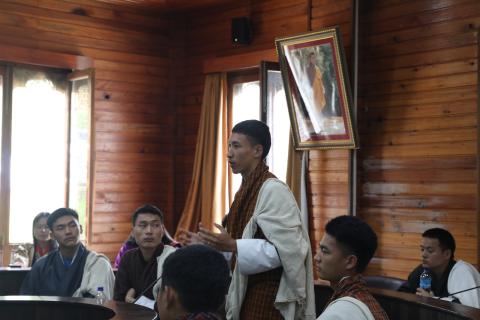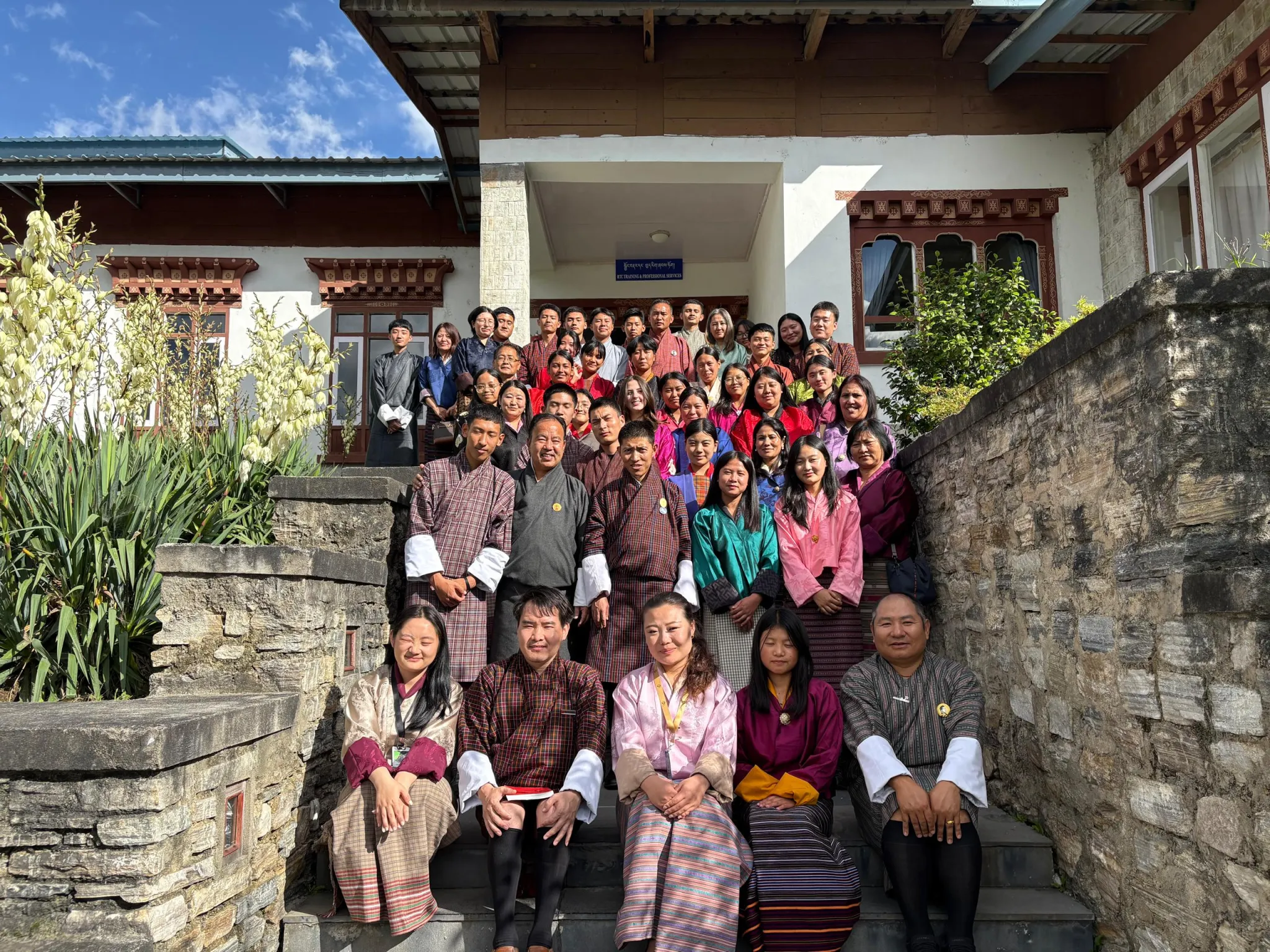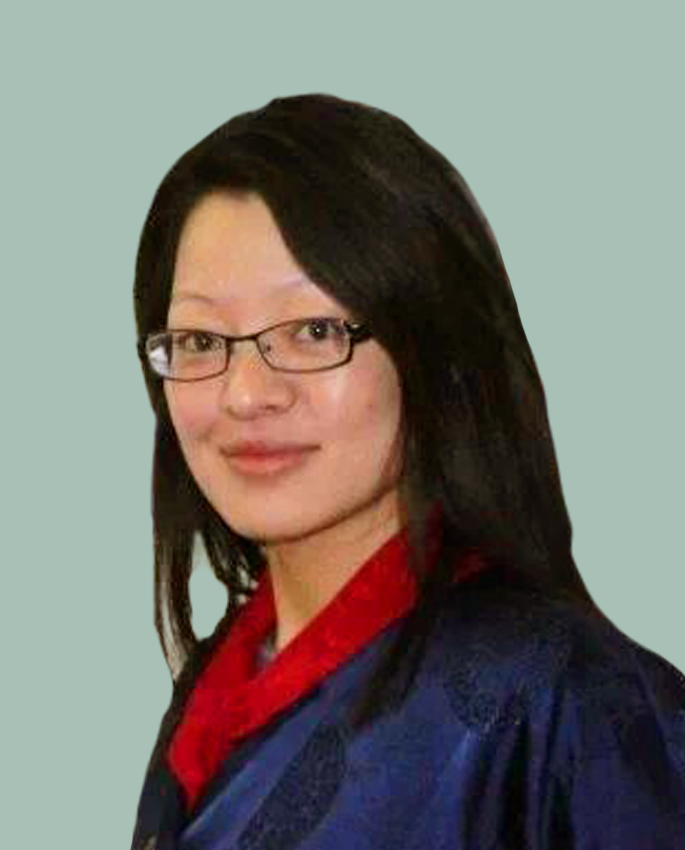
Bhutanese youth speak up: Lawmakers hear bold ideas for a more inclusive future

The forum was led by International IDEA with support from the EU-funded Project ‘Nyamdrel II’, which aims to strengthen collaboration between CSOs and the Parliament for inclusive governance in Bhutan, in partnership with Respect, Educate, Nurture, and Empower Women (RENEW).
The forum was a rare public space where young people voiced their concerns and shared policy recommendations directly with lawmakers. It marked the culmination of a transformative six-day Youth Camp, which began on 1 July. The five days of the camp were facilitated by the Bhutan Centre for Media and Democracy (BCMD) and RENEW, covering key areas such as history, structures, and values of Bhutanese democracy explored through the forum and the educational visit to the Parliament of Bhutan along with leadership, civic education, core concepts on Comprehensive Sexuality Education (CSE), youth friendly legal framework and media and digital literacy.
Reflecting on the experience, Karma Yangchen, a Class 12 student from Tashidingkha Central School, said, “Engaging in youth parliamentary sessions is very important because it helps represent the voiceless youth across the nation.
The first segment of the forum featured a gallery walk, where different youth groups presented the results of their discussions from the camp through posters and visual displays, allowing participants to walk around, observe, and engage with each group’s key ideas and reflections. The young participants highlighted several pressing challenges faced by them, their peers and the communities. These included domestic violence, early marriage and teenage pregnancy, child sexual exploitation, youth unemployment, underage clubbing leading to substance abuse, and the marginalization of transgender groups and people with disabilities. The young people also spoke about the disconnect they feel from governance processes due to the absence of inclusive spaces for them to express their concerns. They advocated for the establishment of youth committees at the local government level.

The youth participants offered a range of recommendations to the parliament, from the need for comprehensive sexuality education in schools and stricter enforcement of alcohol sales and club entry restrictions, to expanding rehabilitation centers and enhancing support for marginalized groups.
The second part of the forum consisted of a panel discussion featuring two youth representatives, Members of Parliament from both the National Assembly and the National Council, the Secretary General of the National Assembly Secretariat, and a representative from the Youth Development Fund (YDF). In an open and candid dialogue, panelists and youth explored the underlying causes of these challenges and discussed policy solutions.
Hom MP Namgay Dorji highlighted that nationwide consultations have already been conducted with key stakeholders, particularly on the issue of drug and substance abuse. The Secretary General further explained that parliamentary tools such as motions during parliamentary sessions, the submission of petitions, public hearing and question sessions with the government, provide opportunities for youth and the public to raise their concerns with their representatives and make direct submissions for consideration.
However, the discussions emphasized that awareness of these mechanisms is lacking. Both youth and other stakeholders must learn how to access and utilize these tools effectively and responsibly. Inclusive policymaking, the panelists stressed, requires shared responsibility from all sectors, government agencies, CSOs, communities, and most importantly, from young people themselves. They emphasized that personal responsibility and accountability should start at the individual level.
Representatives from CSOs, including YDF, spoke about the important role of CSOs in bridging gaps between youth and the governance systems. By offering skill-building programs, advocacy platforms and community engagement initiatives, CSOs help prepare young people to contribute meaningfully to democratic governance.
The forum underscored the critical role of young people in strengthening Bhutan’s democratic values. It demonstrated the country’s evolving commitment to participatory governance, where youth voices are heard and respected.
“After attending this program, I find myself reflecting on the profound moments we shared. Each conversation and every insight helped illuminate paths we may not have seen before,” said Rada Om, a Class 12 student from Tashidingka Central School.
Panel speakers reiterated that young people must not only be educated about democracy but also be given meaningful opportunities to participate in shaping the policies that will affect their lives. The discussions highlighted that when youth are informed, empowered, and included, democracy becomes stronger and more resilient.
The forum concluded with a set of concrete policy recommendations that were raised by the participants:
- Integrate Comprehensive Sexuality Education (CSE) into the core school curriculum.
- Expand and decentralize drug rehabilitation centers and strengthen anti-drug trafficking controls at transit hubs such as Paro International Airport.
- Enforce stricter ID verification systems, including exploring the use of biometric checks, to prevent underage access to alcohol and entertainment venues.
- Ban vape products and regulate the density of bar licenses to reduce youth exposure to addictive substances.
- Establish youth committees at the local level and introduce an Annual Youth Voice meeting to formalize youth participation in governance.
- Ensure inclusive public facilities, including safe and accessible toilets for third-gender youths.
Some of these recommendations reflected the young participants’ determination to contribute to building a more inclusive, safe, and equitable society.
Looking ahead, the Parliament will continue to engage in forums like this to foster meaningful dialogue with young people in line with their Strategic Development Plans (2024-2028). As this is a regular activity of the Bhutan Centre for Media and Democracy (BCMD), another youth camp is expected to take place during the winter.




